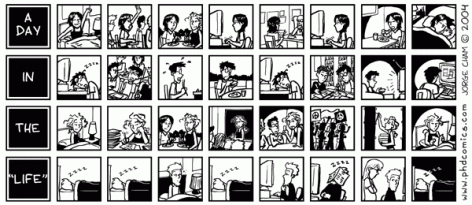It was 1st December 2008 when I first started working in the Sanger Institute. And now I have been here for an month (with 2 weeks holiday!) and I am still feeling very happy here. I have no complaints (other than the dreadful looking photo on my ID card) so far, and I would like to contribute some of my personal thoughts about Sanger on my dying blog.
Note: All of below are solely my personal opinion.
Things I like about Sanger
- It’s truly an amazing place filled with truly amazing people.
People are really friendly here who are willing to help you during breaks. Everyone is really^inf clever and seems to know everything. There are so many interesting seminars and projects going on all the time. It’s a truly fascinating place if you like to meet people, do research, learn biology, play computers and have fun. - You have a lot of data for your research
It’s every scientist’s dream to have all the data in the world to extract information and learn something about life itself. In the first day of my work I get to assemble a few million reads of helminths genome. - Resources
pretty self explanatory: people + computing powers + data - Available projects
If you have time, there are so many possibilities to interact with different groups within the Institute. Some people I know are working on 10+ projects and they thrive on it. - Think big
I admit that my main interest is the evolution of genome, so it’s really cool to see all the latest technologies and methods to try and tackle many questions in a massive scale. I don’t know if I can go back and sequence just the one locus and study it for the rest of my life… - Perl
enough said..
there are also something I have noticed..
- High turnover rate of staffs
I am not sure if it’s the fate of all major science institutes. People who come in (assuming they are reasonably clever and work hard) would usually get a position within 3 years, and they would leave the place and left unfinished projects. Usually the solution is to leave the project as it is or to advertise new position to fill the gap. But it takes time and energy (e.g, read other peoples’ directories/reports/codes without much instructions) to have the project started again. - You have a lot too much data for your research
Have a lot of data is good. But too much data require careful planning of how to handle and analyse the data with such scale. It’s also problematic when there is no consensus agreement of tackling a simple problem. This results in lots of scripts all doing essentially the same thing. - Perl with no documentation
enough said.. - Think big Think small?
I am from biology background. It kind of bugs me when you have so many pipelines/scripts lying around but not much of instructions on it. I understand with so many data and so many deadlines, doing documentation on your perl (!) code is probably the last thing you want. Perhaps it will be good in the long term to start doing it. - Too many meetings
During my Phd, I can just sit down and code for the whole day, focused, and get things done! In Sanger, because each genome project is the interest of many groups, so you tend to have a lot of meetings. Even I am feeling this way, imagine what the PIs are feeling…
To conclude, I love it so far, and let’s hope my brain and hairline will cope with place like Sanger…
P.S Sanger is really short of staff at the moment. They are looking for ‘normal’ people who like to research 😛




